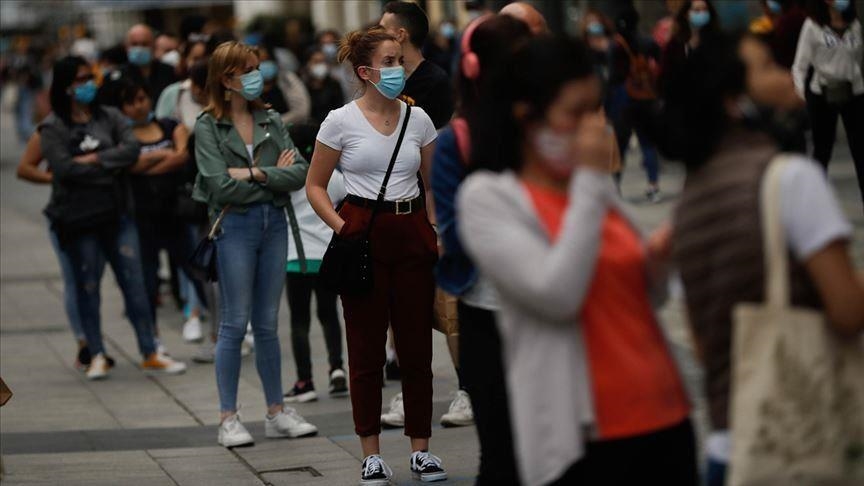
OVIEDO, Spain
Employment for people older than 50 in Spain has recovered to pre-pandemic levels, while workers younger than 25 are still struggling to regain lost jobs, according to a study published by the employment agency Asempleo on Monday.
Around 40% of Spain’s youngest workers were unemployed in the last quarter of 2020 – the highest number in the European Union. The figure is up 10 percentage points from the last quarter of 2019, when 29.5% were unable to find work, according to Organization for Economic Cooperation and Development data.
Meanwhile, the unemployment rate for workers older than 50 years old has bounced back to 2019 levels, sitting at around 12.7% at the end of 2020.
In 2020, one out of every four young workers in Spain lost their jobs or were laid off, mostly due to the pandemic.
The same pattern was seen during the 2007 to 2013 economic crisis, when youth unemployment reached a peak of 57.5% in Spain, while the oldest group of workers even saw employment increase.
As for the factors behind this stark labor market inequality, according to Asempleo, it comes down to the type of job contracts and the sectors where younger people work.
In 2020, two out of every three young workers in Spain were hired on temporary contracts. At the same time, 47% of all positions destroyed were temporary, even though they only represent 26% of the labor market.
In contrast, only 14.3% of older workers were hired on temporary contracts.
Similarly, younger workers are much more likely to hold part-time jobs, which were more readily destroyed amid COVID-19.
Housing, birthrate
Of course, certain sectors like tourism, hospitality and retail took the hardest hit during the pandemic. More than half (51.3%) of younger workers were employed in those sectors, and 16% of those workers lost their jobs or were laid off.
At the same time, 28% of workers older than 50 were employed in the same sectors, but just 2.3% of them lost employment.
Indeed, regions of Spain with older populations have even managed to keep employment higher than areas with younger populations.
The labor market instability has taken a huge toll on the lives of many young workers, even though they are less vulnerable to COVID-19 themselves.
A recent study by Spain’s Council for Youth (CJE), done last summer, found that 82.7% of Spaniards aged 16 to 29 live with their parents.
Another survey by Spain’s Institute of Youth found that just 32.8% of people under 30 years old have plans to move out – down from 48% the year before.
“The fragile labor market situation combined with the tough conditions in the housing market… have brought emancipation levels of young people to historic lows,” warned the CJE.
The situation could be partially to blame for the number of births in Spain having fallen by nearly a quarter nine months after the pandemic began.
The birthrate is now at Spain’s lowest since the country started keeping records in 1941.
Anadolu Agency website contains only a portion of the news stories offered to subscribers in the AA News Broadcasting System (HAS), and in summarized form. Please contact us for subscription options.







